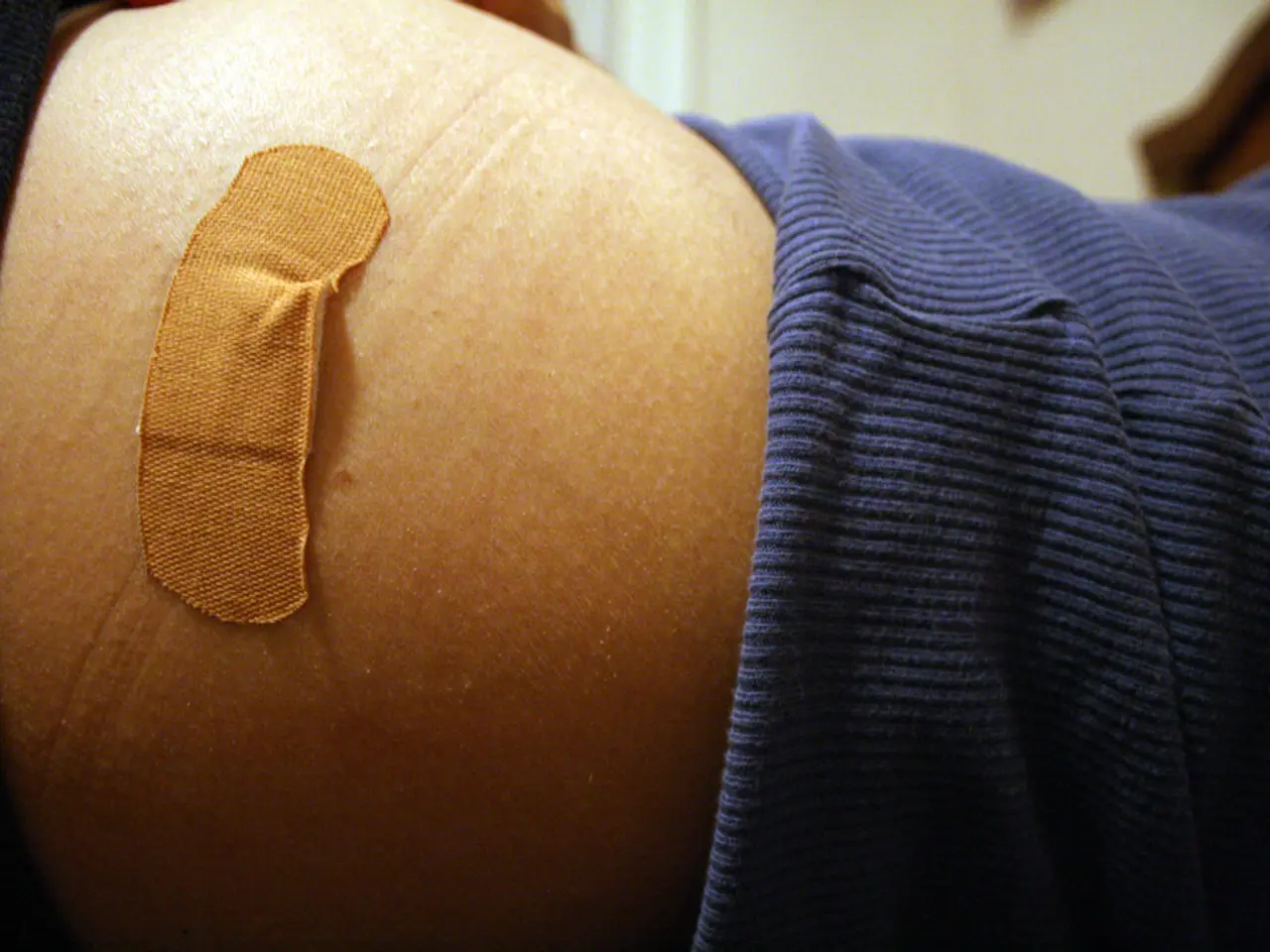Signs Indicating the Need for Suturing a Wound
In some cases, a cut or scrape may require medical attention, including stitches, to ensure proper healing and reduce the risk of infection. Here's a comprehensive guide on when stitches are necessary and how to care for wounds at home.
When are Stitches Necessary?
Stitches, or medical sutures, are typically needed when a wound is deep, long, or severe enough that it won't heal properly on its own. According to Dr. Fertel, specific criteria for stitches include:
- The cut is deeper than ¼ inch or longer than ½ inch.
- The wound edges gape open or are jagged and uneven.
- Bleeding does not stop after applying firm, direct pressure for about 10 minutes.
- You can see fat, muscle, or bone in the wound.
- The cut is on areas where scars could be problematic, such as the face, genitals, hands, feet, or joints where movement is affected.
- There is a foreign object embedded in the wound (e.g., dirt, glass).
- The wound has a risk of infection, like animal or human bites.
Urgent concerns include cuts that spur blood rapidly (suggesting artery involvement), which require emergency care.
Caring for Wounds at Home
For minor cuts or scrapes, irrigate the wound with clean water, apply a topical antibiotic, and cover it with a bandage. After the initial 48 hours, gently clean the stitched area with cool water and soap, dry with a clean paper towel, replace bandages daily, and apply antibiotic treatment if needed.
For adults who have not had a tetanus booster shot within the past 10 years, it will be necessary upon such injuries. If uncertain whether a cut needs stitches, it is advisable to seek medical evaluation, especially if any of the above criteria appear.
People with conditions that slow healing or increase infection risk, such as diabetes or poor circulation, should also seek medical advice even for less severe cuts.
Seeking Medical Attention
Visiting an emergency department or urgent care center is advised for wounds that require special treatment, including bites, dirty wounds, or wounds with a high risk of infection. Dr. Grover advises parents to avoid giving an injured child anything to eat or drink before going to the ER. On the way to the hospital or clinic, apply direct pressure and elevate the injured area to slow or stop most bleeding.
In all cases, keep a close eye on a wound while caring for it at home and visit a healthcare provider if concerned.
- Maintaining good health is essential for overall well-being, and this includes taking care of our skin, such as addressing skin conditions through proper skin care and therapies and treatments.
- Proper eye health is equally important, as eye conditions can significantly impact our daily activities, and regular check-ups with an eye care professional are recommended.
- Chronic diseases like chronic kidney disease and respiratory conditions can pose long-term health risks, making workplace wellness programs and regular medical check-ups crucial for early detection and management.
- While exercise and fitness are important for our physical health, mental health should not be overlooked. Stress, anxiety, and depression are common mental health issues that can be addressed through various therapies and treatments.
- Nutrition plays a vital role in our health, and consuming a balanced diet rich in essential nutrients helps maintain our health and wellness. Additionally, natural products like CBD have been shown to benefit certain medical conditions.
- In the event of a deep or severe wound, proper healthcare is necessary to reduce the risk of infection and promote healing. This may involve stitches, depending on the specific criteria outlined by medical professionals.
- It's important to remember that for minor cuts or scrapes, basic home care, such as cleaning the wound with water, applying a topical antibiotic, and covering it with a bandage, can help prevent infection.
- For adults who have not received a tetanus booster shot within the past 10 years, it is necessary to get one upon injuries that could potentially expose them to the tetanus bacteria.




